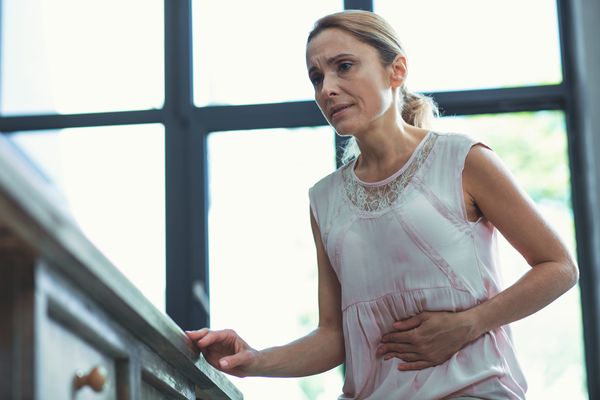Most days, I'm at home working in my office. It's quiet—just me, my computer, my hopeless piles of paper and random noises from the outside world. The television and radio in my office rarely get turned on because I adore the quiet.
And I feel pretty calm. Of course, there are those times when the phone rings a bit too much, e-mails flood my inbox, my old dog's arthritis/stomach/nerves drive me to distraction or my deadlines merge into a frenzied rush.
But then I step foot out into the "real" world: reckless and dangerous drivers, rude people, rushed or inattentive salespeople. Life sometimes flies by and smacks me in a blurred cacophony.
And I wonder: is it like this for everyone? Or is it me showing my, ahem, age? I've got a folder overflowing with articles on the topic of women and stress, with the vast majority of the articles highlighting how baby boomers are less healthy than their parents, both mentally and, in turn, physically (now that topic is for another post).
Hidden in these papers is one with a study from the Gallup-Healthways Well-Being Index saying that women between the ages of 45 to 64 have the lowest well-being of all age groups, male or female.
So, is it an age and gender thing, then? Or, as I wrote in a previous post, is it attributable to hormonal upheavals?
Well, yes. And no. I think being in this age range—and being a woman—naturally and inevitably set us up for many stressors.
- By this time, if we still have our parents, they're elderly—and living longer than previous generations. And elderly parents (unless they're really fortunate) equal health problems, which translates to us helping out, acting as their advocates, moving them into our homes or assisted living facilities, etc.
- Like it or not, women are the traditional caretakers. And tradition sometimes trumps our best efforts to equalize things. That means we shoulder the brunt of the person-to-person responsibilities, not only helping to care for our parents, but for our own family and, if there's time left over, ourselves. But taking time for ourselves often leads to guilt that we're taking time away from our families—so we don't do it often enough. Here's a statistic from AARP: 20 percent of people age 45 to 64 have caregiving or financial responsibilities for a parent, older family member or adult child.
- Our children may be grown by now, but chances are good that our once-empty nest has filled back up. If not, we might be helping out our children financially. When I think about how much easier it was to get by financially when I was in my 20s than it is for 20-somethings today, I believe it when I hear, "Things were different back then, Mom." (It's true I was able to scrape by on only $10—maybe $15—a week on food since I existed on canned soup and omelets. And food was cheaper then.)
- We're not getting enough sleep because either we're too busy, too overwhelmed or too stressed to sleep. And sleep deprivation, along with threatening your health, leads to an increased inability to cope with everyday life.
- As women, we may be hardwired to be less able to cope with stress. It could be just a matter of brain chemistry. According to the National Institute of Mental Health: “A study in rats has revealed striking gender differences in the brain's stress response that could shed light on women's proneness to mood and anxiety disorders. Female rat brain cells were more sensitive to a key stress hormone than males', which could adapt to the hormone in a way female cells couldn't." Stress activates something called the corticotrophin releasing factor (CRF) in your brain (which lets it know that something is wrong), and men's brains need a lot more CRF than ours do before they become highly agitated. (Others theorize differently, claiming that due to the female hormone oxytocin, women seek out other women to talk to when they need help. Personally, I prefer this way of thinking.)
What do you think? Is stress one of the prices we must pay—one of the inevitable changes that come with aging? More suggested reading:







